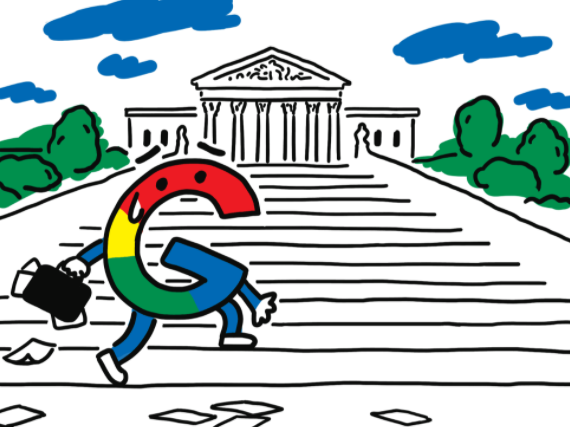Google’s long-established business model which is based on free services and advertising will be running for the test in the landmark antitrust lawsuit filed by the Justice Department of the United States.
But the US government is facing challenges to prove allegations of monopoly against google which turned out to be into one of the world’s most efficacious businesses by grasping its influential search engine for a network of services like maps, email, shopping, and travel that feed its data-driven digital marketing.
Legal experts pointed out that it might be problematic to show Google’s conduct was illicit under consumer welfare standard in monopoly cases as google’s services are mostly free.
The former lawyer from Avery Gardiner has said that the government appears to be skirting the question of whether the tech giant is getting benefits from consumers by offering them free services. He also said that in the past, the antitrust agencies have been unwilling to move forward with no evidence of price effects.
As per the Data provided by the US Justice Department has shown that the company has controlled 88% of US search queries, along with the share of 94% in the mobile market, and argued that the firm is strengthening its monopoly with its exclusionary deals.
Image from Google
Google has generated 161 billion dollars during last year. Most of which has come from digital publicity involving messages that are linked to the search queries posted by people.
Also, as per a law professor, Google’s use of free services is not likely to be a grave hurdle for the US government. Further, the company’s search is arguably not completely free, since each search can be considered as a payment in which the consumer gives their attention to ads in return for search results.
Perhaps an important element of the case is going to be Internet advertising which is an invention that the company definitely is not going to give away for free.
Additionally, the case is not based on prices but is based on privacy, protecting data, and the usage of consumer data.
A broader view of antitrust has been taken by analyzing the competitive harms done to the marketplace and not only prices to consumers.
The Justice Department has argued that Google has covered its monopoly position by using deals with device makers to make sure that its applications and services are conspicuously showed and sometimes cannot be erased.
Any settlement, if forced by the court or settled to by the company, can include changes to business practices or a mechanical remedy, which is the code word for a disintegration of the California titan.
As per an Independent technology analyst, the case against the company appeared to be strong but that the most probable remedy is not the company’s disintegration but measures that impose just competition.
This can allow non-Google services and applications to be more prominent on the company’s Play Store.









